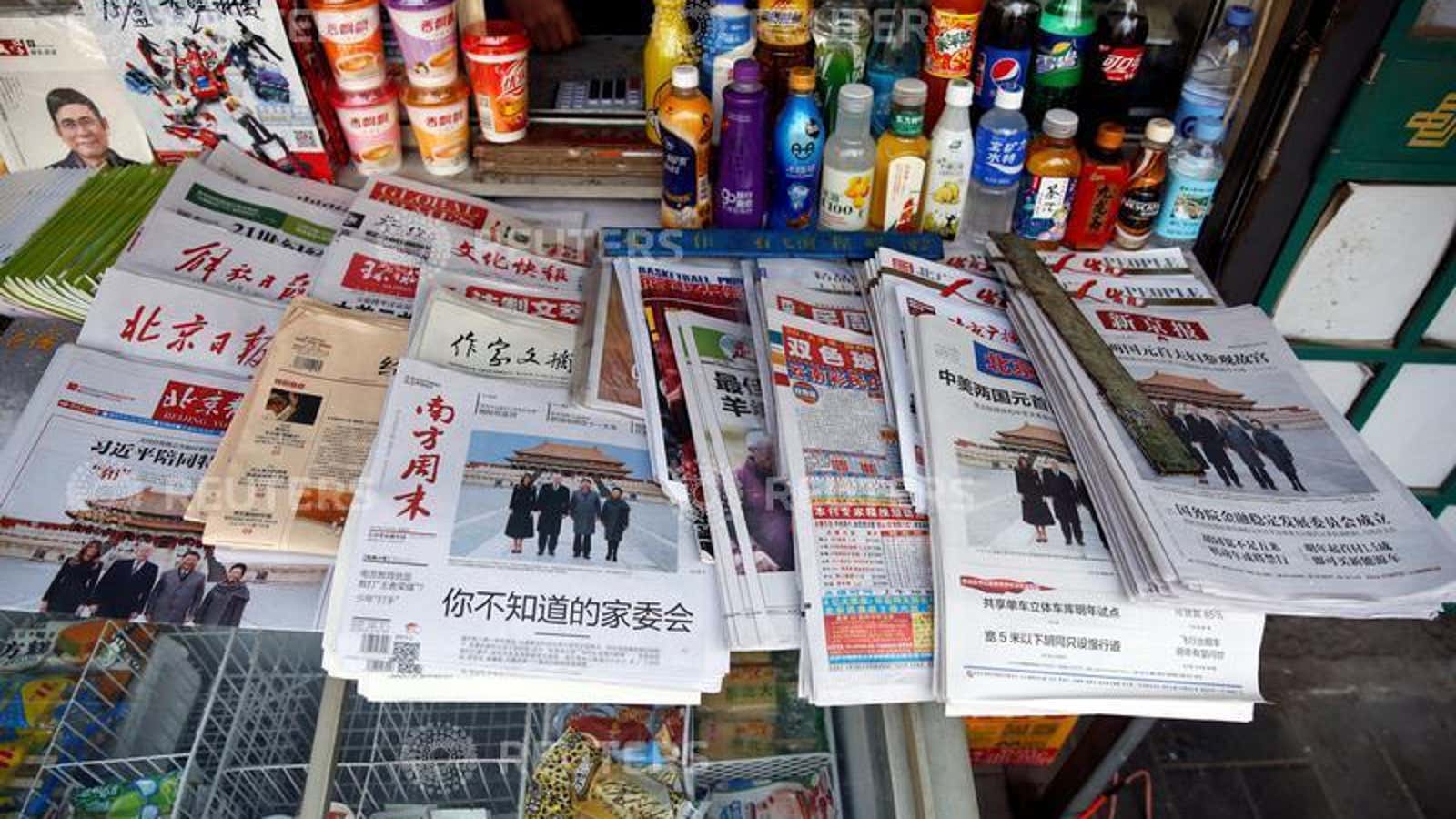As media outlets across the world devoted their front pages and air time to the massive protests against a controversial extradition law that have taken place in Hong Kong this past week, one of China’s state-owned dailies appears to be looking at a very different version of events in the city.
English-language China Daily, which has an overseas circulation of around 600,000 copies, chose to focus on a different protest in a story today (June 17) than the one that drew an estimated 2 million people yesterday. Headlined “HK parents march against US meddling,” the report said that a group of 30 people marched yesterday (June 16) to the US consulate, with one member of the group saying that it was “despicable that some US politicians repeatedly interfered in the extradition law matter.”
The protest reported by China Daily took place as hundreds of thousands of people paralyzed almost every major artery on Hong Kong Island in protest not only of the extradition law, but also of police violence.
As protesters have taken to the streets over multiple days in the past week and as opposition to the proposed extradition law—which would allow Hong Kong to send suspects to mainland China—has increased from almost all quarters of the city and around the world, China has tried to control the messaging in a number of ways.
Domestically, it’s censored “Hong Kong” and related search terms on platforms such as messaging app WeChat, with only state-media-approved reports of the protests in Hong Kong and the extradition law made available to users. China’s foreign ministry, meanwhile, has repeatedly characterized the protests as foreign-instigated, a message that is echoed in Hong Kong’s Beijing-friendly newspapers (link in Chinese) and propagated by nationalistic Chinese tabloid Global Times.
In its overseas edition, the People’s Daily wrote today (link in Chinese) that the extradition bill continues to draw large support from across Hong Kong society while imploring the city to “restore to calm”—without explicitly mentioning the protests at all.
China Daily’s report today also followed an incident last week where the newspaper ignored a million-person-march on June 9 and chose instead to report a story on a “city-wide signature campaign” that was signed by 800,000 people.
China Daily’s report was widely derided and made fun of today as being one from an alternate universe, but to some, it also raised more serious questions about the reach of Chinese state-backed propaganda at a time when Beijing increasingly flexes its muscles in the media sphere. Many foreign newspapers, such as the Washington Post and the New York Times (paywall), carry supplements from China Daily or run sponsored content from it or other state-backed publications, while journalists in poorer countries often receive training and funding from Chinese media companies who encourage them to tell positive stories about the country.
US president Donald Trump is himself no stranger to the power of Chinese propaganda. In 2018, he highlighted a four-page supplement placed by China Daily in Iowa’s largest newspaper—and spun it to his own advantage.
